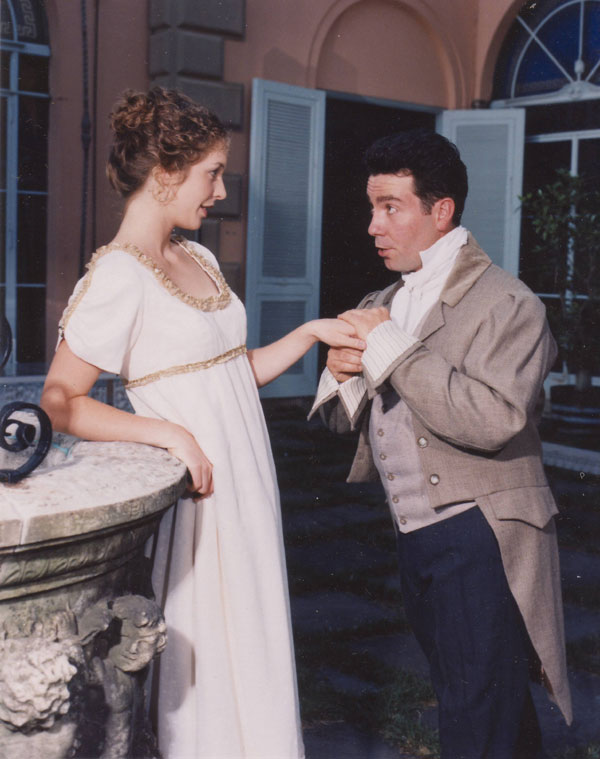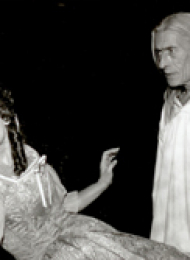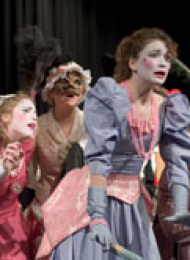"Hilariously entertaining. ...Like the original, [Mooney] has penned Misanthrope entirely in rhymed couplets, obviously indulging himself in great fun in the process."
Chicago Tribune
"...the amazing translation by Timothy Mooney... delivers all Moliere's mirth in the cleverest verse."
Patty Nolan, Detroit Theatre Examiner
"Timothy Mooney's translation of Moliere's wit survives the switch from the original French with wit intact. It is also wonderfully easy to understand -- all while often rhyming, a feat in itself. The one-liners are wonderful, the wisdom both tongue-in-cheek and profound, and the dialogue quick and entertaining."
Sue Suchyta, Dearborn Times-Herald
"...a rhymed riot. It's a tour de force right down the line, from Moliere's brilliant original to Timothy Mooney's flavorful English adaptation."
Lawrence B. Johnson, The Detroit News
"Mooney brings a wit and style to the stage that easily resonates with contemporary audiences. Anyone who enjoys the television series House will certainly like this play with its clever word play and philosophical insights. Mooney's adaptation -- written in rhymed iambic pentameter -- skewers the hypocrisies of conventional society and the little (and sometimes large) lies humans rely on to maintain appearances and social order."
Greenwood Index-Journal (South Carolina)
"As good an actor as he is, Mooney is steadily building an even bigger reputation for his writing skills."
Chicago Tribune
"The play has been translated into a lyrical masterpiece imported into the 20th century and adapted for American audiences by Timothy Mooney. The intricate verses filled with puns and quips satirizing French high society presented quite a challenge for Mooney to deliver the full impact of the play without losing the proverbial wit in the translation. He reconstructed the dialogue with mastery, assuring Moliere's rediscovery among modern audiences."
CU-Denver Advocate
"An ambitious undertaking, Mooney's adaptation employs clear, accessible language without compromising the meaning or too much of the play's 17th century decorum."
Chicago Reader
Set: The home of Celimene.

























